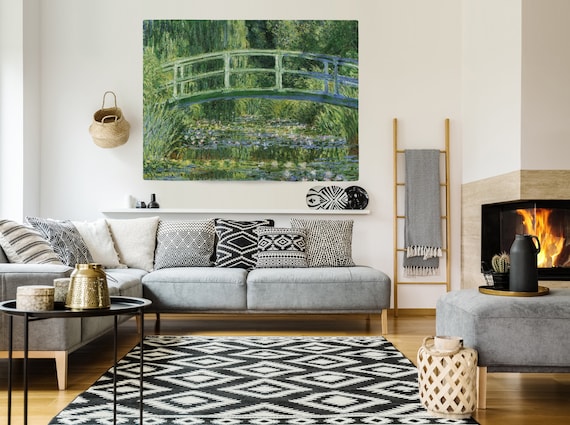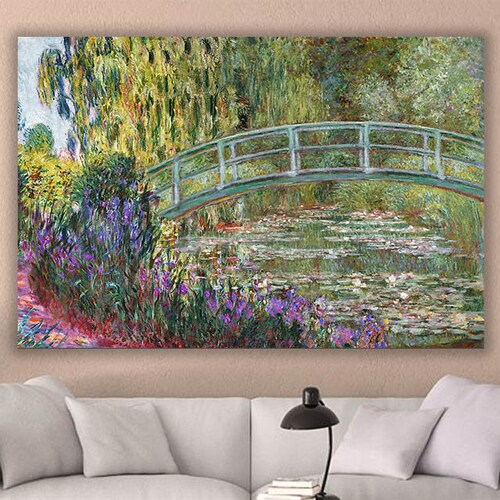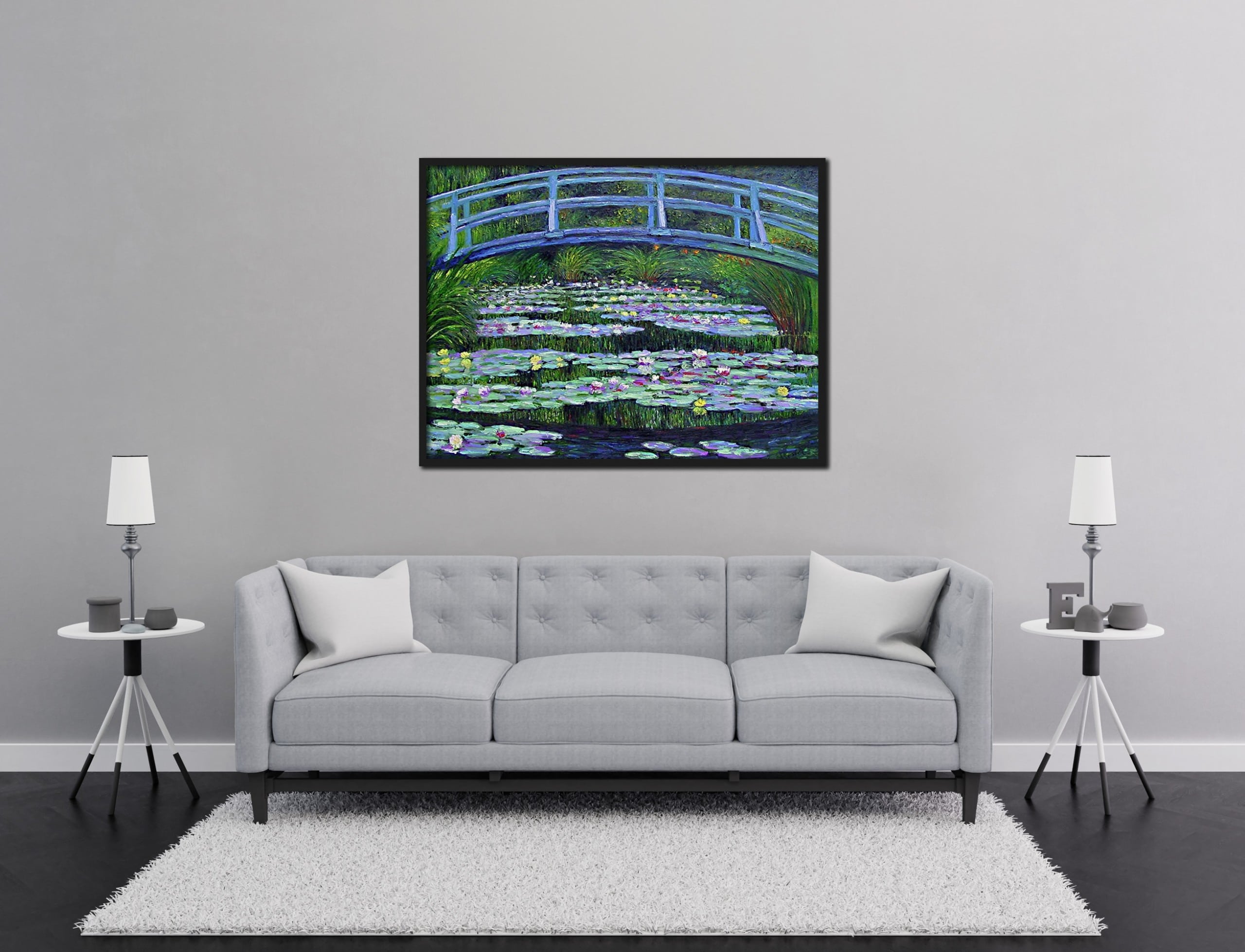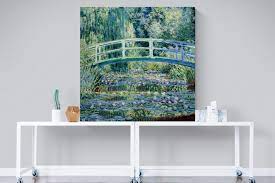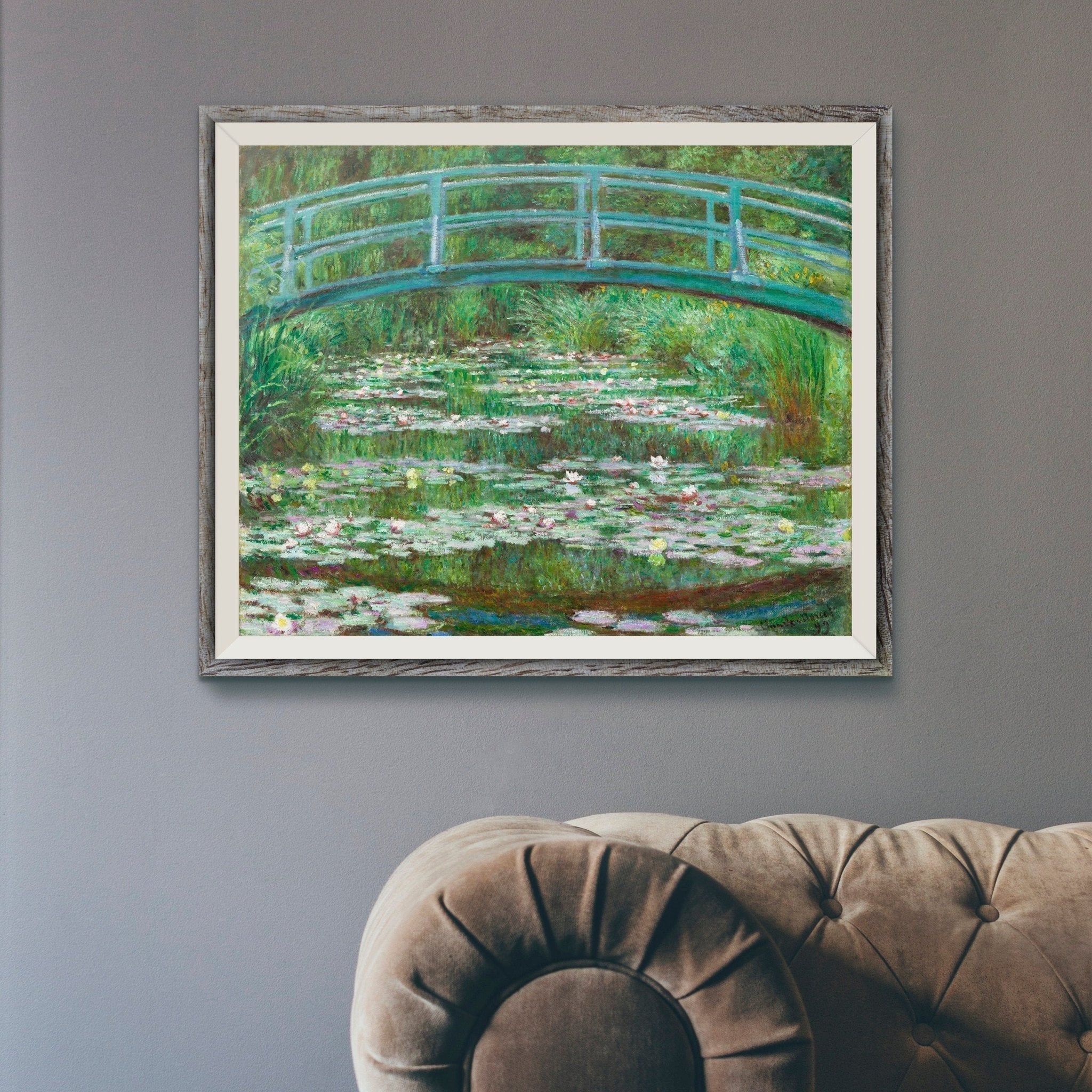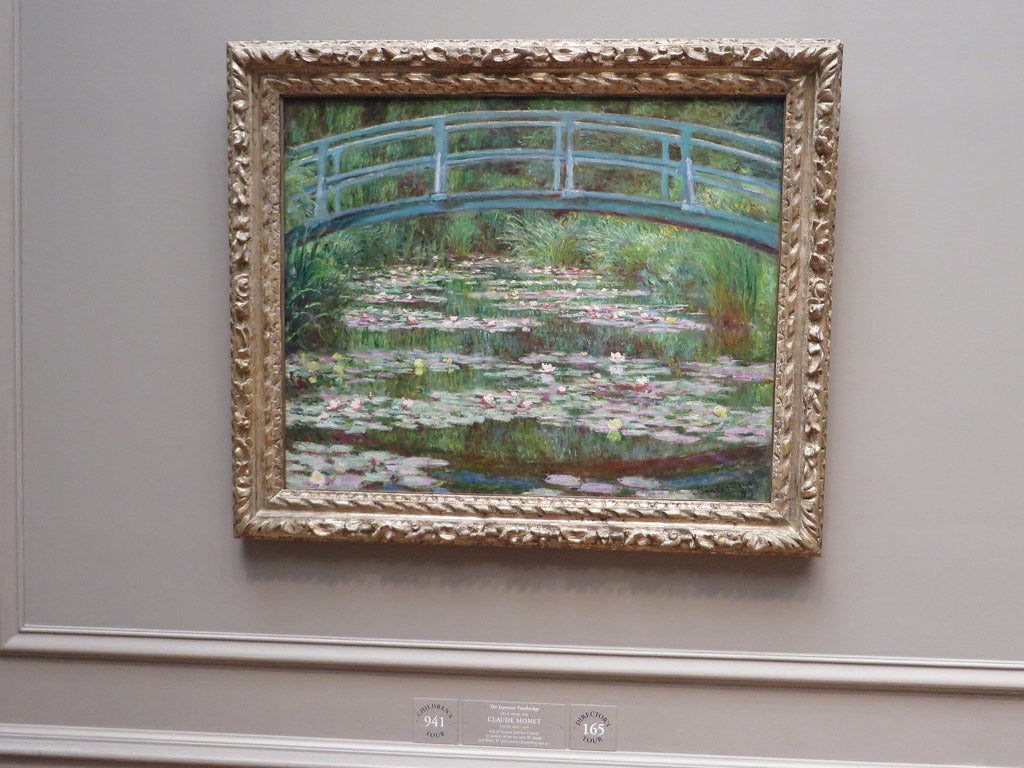Description
The Japanese Bridge or Japanese Footbridge is a series of paintings created by the French Impressionist artist Claude Monet. The series is made up of around 250 paintings, created between 1899 and 1926, depicting a Japanese bridge in the water garden of his home in Giverny, France.
Monet designed and built the landscape that appears in the painting, from the bridge to the pond and its shape, to the water lilies and other plantings.
What is interesting about this series of paintings is the way Monet captures the light and color of nature at different times of the day and seasons of the year. In each of the paintings, the artist uses loose, vibrant brushstrokes to create a sense of movement and light in the water and vegetation.
Additionally, Monet incorporates elements of Japanese culture into the series, such as the arched bridge and the use of color and composition. The influence of Japanese art on Monet's work is evident in the use of vibrant colors and the asymmetrical composition of the paintings.
Another interesting aspect of this series is that Monet used the water garden at his house in Giverny as his main source of inspiration during the last years of his life. The artist dedicated himself to creating and maintaining the garden, planting exotic flowers and plants, and building a Japanese bridge that became the main subject of his series of paintings.
The series is a sample of the artist's commitment to nature and his ability to capture light and color in his work.
The Japanese Bridge is ranked no. 87 on the list of famous paintings

